Chapter One
The plane landed, and Dunni’s rapid heartbeat slowed. As the pilot announced the arrival in Lagos, a prolonged breath eased out of her along with a whiff of alcohol, courtesy of the wine that had made her anxiety manageable.
Dunni had recently developed a fear of flying. And the person responsible for that fear was her grandmother-her Iya Agba. The seventy-eight-year-old woman, known within the family for dreaming sinister things that somehow came true, had called Dunni five times in the last month, detailing five different scenarios where Dunni died.
A plane crash had been one.
The logical part of Dunni’s brain, the part that had gotten her a Ph.D. in genetics, had dismissed the dreams. The other part of her brain, the part that kept a detailed account of her grandmother’s predictions, had been terrified, paranoid, and irrationally cautious.
Dunni often described her grandmother as someone who lived with one eye in the present and another peeking into the future, spiritually straddled between two periods.
Iya Agba dreams, and her dreams come true. History held the proof.
When Iya Agba was a child, she dreamed her primary school teacher died in an okada accident.
He had.
On the eve of her wedding, she dreamed her husband-to-be died of a heart attack days after his sixty-fifth birthday.
He had.
Iya Agba dreams, and her dreams come true. It was a known fact, especially to that other half of Dunni’s brain that relied on historical proof. But she tried to ignore history and her upbringing in a country where there were always two narratives – the natural and the supernatural. Dunni had lived in America for twelve years, where she had studied molecular genetics, pursuing a career as a research geneticist. She had learned to rely on the practical, the explainable. But now, back in Nigeria, with her grandmother’s warnings resounding in her head, practicality suddenly seemed unattainable, further from her reach than it had been before, a continent away.
She rolled her suitcase along and stopped once outside of the airport. It was evening, the sun partially beneath the horizon. The dusty harmattan air moved through the weightless chiffon blouse that flapped against her body. The paved ground beneath her feet was a source of comfort and security. For the first time since leaving Seattle, she breathed easy and felt the fullness of air through her nose and mouth, noting the difference between what she had inhaled in America and what she inhaled now – a dense mugginess infused with the scent of dry earth and flavored with something invisible yet so particularly Nigerian.
Trimmed hedges lined the walkway she stood on; the green shrubs complemented the pale red of the ground. Dunni missed this aspect of Nigeria – the soil, its color, and even its stubbornness, how it clung to anything and everything. It was definitely resilient.
She’d spent twelve years away from her home and from him.
She scanned her surroundings to ensure he wasn’t there. It was stupid. Like her, he was thirty now. For twelve years, she only ever thought of him as a boy. But he must have changed. His lean face and slender physique were probably fuller now, either with muscles or fat. The scanty hairs on his chin, the ones she used to count without going past twenty, must have multiplied, carpeting his face with an unruly thickness. She even suspected his fair complexion had darkened. Then she suspected, with no evidence, that he could be the black-market dealer hollering at travelers, telling them he’ll give good prices for currency exchange-dollars to naira and vice versa. That could be him – Obinna.
Could it?
Maybe she wouldn’t recognize him. But what if she did? What if something in her – something that had stayed the same for twelve years, frozen in time – recognized him? Would that familiarity in her – the one that was both comforting and taunting – recognize the same familiarity in him, something kindred between them?
She hoped not.
Dunni had four days in Nigeria, and if Tiwa wasn’t her best friend, she would have declined her wedding invitation and sent an expensive present instead. She was here only out of obligation.
“Madam! Madam Dunni!” The voice came from behind, a gruff projection that disturbed Dunni’s thoughts.
She turned around and studied the man jogging toward her, his round face older and more worn than she remembered. “Paul?”
“Yes, ma. It’s me.” His feet fell to a slow stride as he neared her and caught his breath. “Welcome, ma.” He sucked in air greedily, then pushed it out as if he no longer had use for it. “Welcome home.”
“Thank you, Paul. It’s good to see you.” She examined his face and noticed the hard lines that tugged on his smiling lips and the corners of his eyes. They hadn’t been there twelve years ago. “You look . . .”
“Like an old man.” He laughed, and his round belly jiggled along with each chuckle. “It’s the consequences of time. What can we do but embrace it?” His mouth closed, and he assessed her. “But look at you. You left home a girl and have returned a woman.” He shook his head and pressed his lips in a regretful smile as if offering condolences for the loss of her youth, something he might consider a tragedy. Or maybe the true tragedy had been the way she’d lost it.
As her family’s driver, Paul had always been there-at the forefront, uncomfortably watching things unfold while trying to appear like he saw nothing and heard nothing. Sometimes, however, he was pushed into the chaos and forced to be an unwilling participant. That day, twelve years ago, when it all happened, that was exactly what he’d been. Unwilling, forced to do something her mother had made him do.
Dunni wondered if he still felt guilty. He had, all those years ago. She remembered that days after the ordeal, he’d driven her to the airport. She was eighteen at the time, leaving home to attend university in America. Her parents hadn’t accompanied her to the airport. It had been only Paul and her in the car. Her stare connected with his in the rearview mirror, and she saw his eyes, full of remorse.
“It wasn’t your fault,” she had told him, because she felt he needed to hear it.
Some people knew how to handle their guilt-how to rearrange the order of an ordeal and direct blame at someone else or redefine their guilt as sympathy pains. Paul did not know how to do any of that. He needed someone to do it for him, so that day, Dunni had.
“What happened wasn’t your fault,” she’d told him.
“But I should have . . .” Paul choked on his words, then cleared his throat until his tone was steady again, professional as it ought to be. “I should have done something to help him.”
“My mother would have sacked you if you had. You have a family to take care of.” She looked through the window as the distance between the car and the airport shrunk. “Just stop. Stop apologizing.”
“Yes, ma.”
Dunni still remembered arriving at the airport and checking her phone, while Paul pulled her luggage out of the trunk.
“Madam Dunni,” he had said. “Is everything okay?”
“I need you to do something for me.” She looked at him. “It’s important.”
He nodded briskly, eager to make amends for what he had done just days ago. “Anything, ma.”
“I need you to check on him.” For the first time since knowing Paul, ten years, she had touched him – gripped his hand, squeezed firmly to convey how desperate she was. And she was. The action – foreign to them both – was more telling than saying please. “I’ve called him, but no answer. He knows I’m leaving today, and still, I’ve heard nothing. You know where he lives. Go to him, check how he’s doing, tell him I’ll find a way for him to join me in America. Tell him I love him. Please.” She added the word for good measure. “Please, Paul. Do this for me, and say nothing to my mother.”
“Madam, of course,” Paul had said. “I’ll do as you’ve asked. And I won’t say a word to big madam.” That was a vital part of the request – one that would secure his job and Dunni’s head.
“Thank you. I’ll call you once I land.” She released her grip and entered the airport.
She left Nigeria that day to attend Princeton University. But she had a plan. They had made it together – Obinna and her. She would attend university abroad as her parents wanted, and they would stay in touch – talk on the phone and send emails. Dunni would hire an immigration lawyer and find a way to bring Obinna to America on a student visa. He was smart; he had excellent grades. He would join her months later. They would live in the apartment her parents bought her. They would study hard during the weekdays, visit American landmarks during the weekends, and make love as often as they wanted. And after they graduated, they would get married – a small garden ceremony with the eccentric group of friends they had grown to call family. They would have three children or maybe four, just to even out the number. They would be happy. They would be together. That had been the plan. But it never happened.
Dunni spread out her fingers and looked at the scar that split across the center of her palm; it broke through creases to forge a path of its own. He had a similar scar. They’d made it together – broken their flesh in order to mend their fates. Back then, she believed it would be enough, that a binding promise would secure their planned future. But she’d been wrong. She turned her hand and looked at the engagement ring on her finger. She’d been so very wrong. It hadn’t been enough. In fact, it had meant nothing at all.
She expelled a deep breath and coached herself to forget the past.
Twelve years without seeing him or speaking to him. Four days in Lagos to attend a rehearsal dinner and a wedding. Then she would be back in America – an ocean and continent away from her past. It sounded simple enough, but she felt unsettled somehow – disturbed by the anticipation of something unknown.
You shouldn’t have come here. The thought occurred to her, and rather than dismissing it or combating it with positive thoughts, she agreed with it.
No. I shouldn’t have.
***
Buy Where We End & Begin and read the full excerpt here: Amazon
Excerpt from WHERE WE END & BEGIN published by Berkley Publishing Group, an imprint of Penguin Random House LLC. Copyright © 2022 by Jane Igharo.



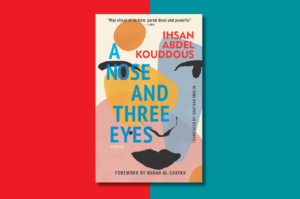
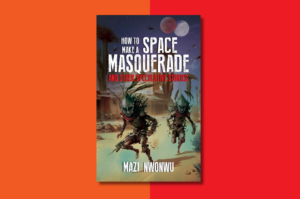
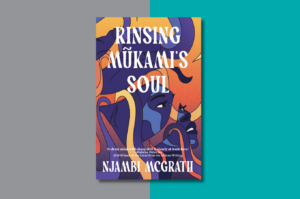
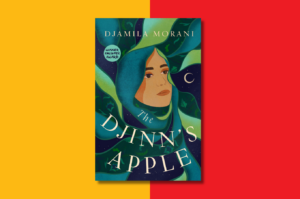
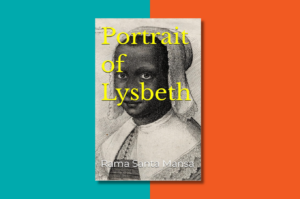


COMMENTS -
Reader Interactions